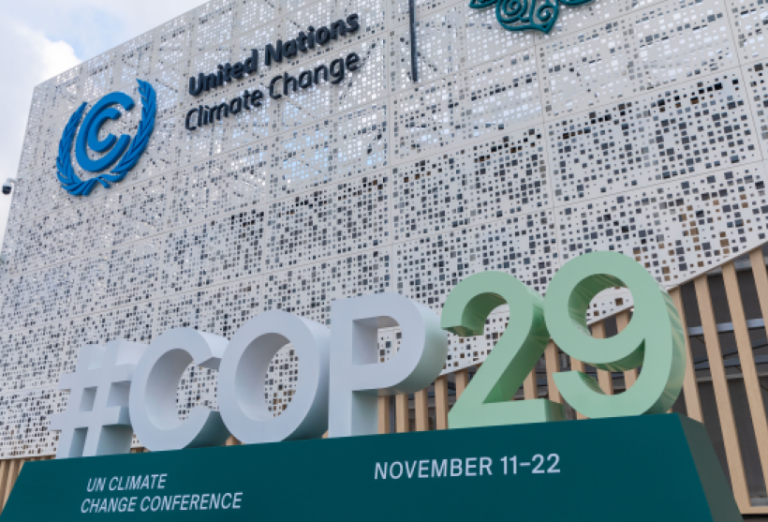As COP29 begins in Baku, all eyes are on the global climate movement, with high expectations for tangible progress. The summit kicked off with some early disputes among delegates over the agenda but quickly turned a corner with the landmark approval of UN standards for international carbon markets. These standards pave the way for structured, UN-supported carbon credit trading, marking a significant step towards achieving climate goals and delivering an early win for the summit.
Among the nations making a strong impression is the UAE. Building on momentum from its hosting of COP28, the UAE has emerged as a driving force at COP29, bringing a renewed commitment to climate leadership. Last year, the UAE’s push for unity around limiting global warming to 1.5°C — dubbed the “UAE Consensus” — set the stage for this year’s conference.
At COP29, the UAE is championing a transformative initiative called the ‘Global Climate Finance Framework.’ This effort aims to bridge the critical funding gap by ensuring that countries in the Global South have access to the necessary resources to mitigate and adapt to climate change. This leadership is timely, as many developing nations face climate-related crises with limited means to safeguard their populations and economies.
Despite the forward momentum, COP29 faces political uncertainty.
The recent re-election of Donald Trump as U.S. President raises concerns about America’s commitment to international climate agreements. Given Trump’s historically skeptical stance on climate change, there is apprehension that the U.S. could retreat from the pledges this summit seeks to solidify.
Nevertheless, progress continues. The UAE’s role in supporting the creation of a UN-endorsed carbon market reflects a strong commitment to reducing emissions. However, it is vital that these carbon markets operate effectively as genuine tools for emission reduction, rather than serving as loopholes for heavy emitters to delay meaningful action.
The UAE’s advocacy for enhanced climate financing to assist vulnerable countries is crucial. Yet, for COP29 to truly deliver, wealthier nations must also step up with concrete financial commitments. For too long, the climate discourse has relied on ambitious promises without matching funding, and this summit must break that cycle.
In the days ahead, COP29’s outcomes will offer a clearer picture of the global trajectory on climate action. The UAE’s efforts to foster real, equitable solutions bring hope for a more united approach. Should the summit succeed in building on this momentum, it could signal a turning point towards practical, inclusive climate solutions — where every pledge translates into real-world impact and shared accountability.


